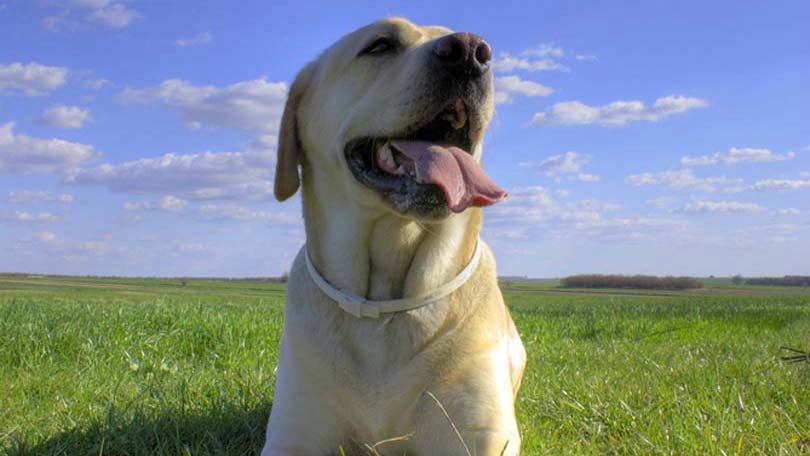
Most dog owners have experienced the most common effects of their pet having digestive problems: vomiting and diarrhea. The causes for these unpleasant effects can be anything from a virus that will quickly pass to a blockage caused by the dog swallowing a foreign object to a more serious disease such as cancer.
Thankfully, when a dog exhibits such symptoms, more often than not it’s a condition that is easily treated and will quickly pass. Still, if your dog is experiencing such stomach problems, you should take him to the vet right away to make sure he is getting the proper treatment.
Some of the causes of digestive problems cannot be avoided regardless of how diligent a pet owner is about keeping her dog safe. Diseases will strike, and when that happens all you can do is follow the vet’s advice to help to nurse your dog back to health.
Other causes CAN be avoided, and pet owners should be aware of what is harmful to their dog, so they can help him stay away from what can hurt him.
Vomiting is a way that the body rids itself of harmful substances. If a dog eats something that the body knows is harmful, it will cause the dog to vomit. This is actually a good thing (although you may not agree as you are scrubbing the stains out of the sofa), because it can potentially save your dog’s life.
A good example of this is found when a dog eats chocolate. There is a substance in chocolate, theobromine, which is toxic to dogs. In sufficient quantities, this toxin will effect dog’s nervous and cardiovascular systems as well as some peripheral nerves. But because the body identifies it as a poison, vomiting will occur.
If vomiting does not occur quickly, the dog will die. Because the body is able to purge the toxin through vomiting, many dogs that experience poisoning from theobromine are able to recover.
That is an example of vomiting as way to rid the body of a harmful substance. As a pet owner, you should help make sure your dog does not ingest anything that could be harmful.
Any substance that is toxic to dogs can cause vomiting and diarrhea. You should consider poisoning as a possible cause of digestive problems in your dog. This may include some foods that you want to give your dog as a treat. While many pet owners like to feed their pet table scraps as a treat, some dogs cannot handle the change in diet, and digestive problems will occur.
it’s best to keep your dog on a consistent diet. Talk to your vet about how much food is appropriate for your dog based on age, weight and activity level. it’s ok to feed your dog’s treats, but pay attention to whether there are any digestive changes. Some dogs seem to be able to eat anything without a problem, while others have a more delicate digestive system.
There are some substances that are almost always harmful to dogs and great care should be taken to ensure your pet does not come into contact with them. Some of those substances are:
- Chocolate
- Antifreeze
- Drugs of any kind (other than those prescribed by a vet)
- Cleaning liquids
- Certain houseplants and flower AND outdoor plants and flowers
- Insecticides
- Gasoline, kerosene
If you think your dog has ingested a harmful substance, contact your vet immediately. In SOME cases the answer is to induce vomiting, but with some types of poisoning, that can harm your dog further. DO NOT INDUCE VOMITING UNLESS IT IS ON THE ADVICE OF YOUR VET.
Another cause of digestive problems is eating too much. While humans love to gorge on holidays, do not let your dog eat much more than his normal daily intake no matter what the occasion. If you give your dog a huge bowl of ‘special’ food, he is likely to eat every bit of it. Then, he may end up with vomiting and diarrhea because his body isn’t use to that much food. For this reason, it’s best to feed the same amounts at the same times each day.
Another cause of digestive problems is swallowing a foreign object. This can create a blockage in the digestive tract that causes your dog to regurgitate his food before it reaches his stomach. For this reason, owners should limit their pet’s access to small toys, string, bones and other items that can be harmful to the digestive tract. As with poisoning, if you think your dog has swallowed a foreign object, take him to your vet as soon as possible.
Digestive problems can also occur due to disease. The disease could be as fleeting as a virus or something that may require long term medication and treatment such as inflammatory bowel disease or caner. Only your vet can determine what disease is causing the problems in your dog. You should not try to diagnose and treat the problem yourself.
In many cases of disease, quick diagnosis and treatment is the key to a making a full recovery. Even if it is not a disease that is causing the problem, it should be the priority of every pet owner to help their companion find relief from the unpleasant symptoms as soon as possible.
The bottom line is that digestive problems are never normal, and they should never be ignored. Take your dog to the vet right away if you notice he is suffering from any digestive problems. Getting him treated quickly could be the difference between life and death.
